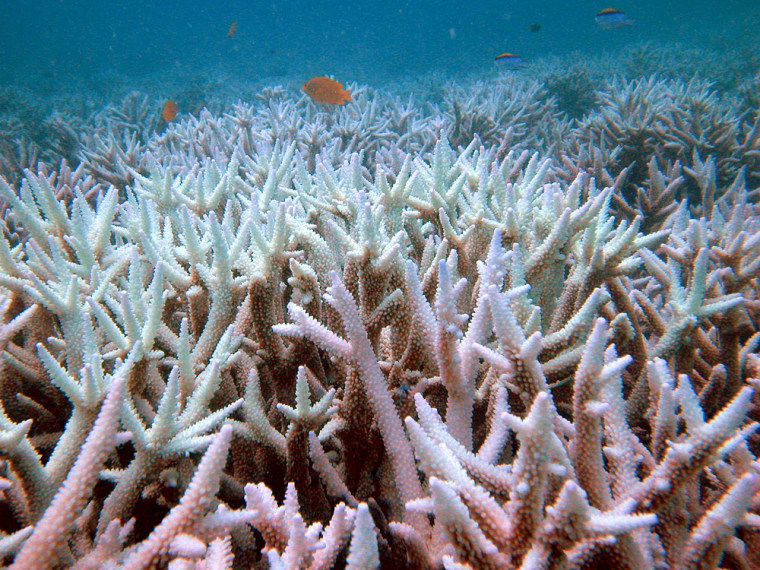The rainbow world of the Great Barrier Reef may fade away.
Scientists say rising sea temperatures worldwide are causing more coral bleaching — the draining of color when the fragile animals that form reefs become stressed and spew out the algae that give coral its color and energy to build massive reef structures.
Oceans are also absorbing more carbon dioxide, increasing their acidity and eroding coral’s ability to build reef skeletons.
Because just a 2-degree-Fahrenheit shift can trigger a major bleaching event, the behavior of corals is an early sign that global warming is already changing our world, experts say.
“We’ve got about 20 years to turn (greenhouse gas emissions) around or it’s going to cost the world a lot environmentally but also economically,” said Terry Hughes, a leading Australian coral specialist.
The 1,250-mile-long Great Barrier Reef, off Australia’s northeast coast, produces $4 billion a year in tourism revenues. Forecasts vary, but many experts say ocean temperature rises projected for the next 50 years could strip this natural wonder of most of its color. The changes will affect countless millions of fish and other marine organisms that depend on the reef.
Many reefs worldwide will fare worse, since they don’t have the protection against pollution and overfishing provided by the Great Barrier Reef World Heritage Area.
